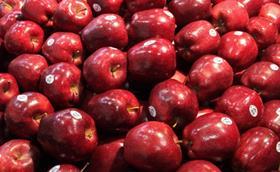
Old age could provide the US apple industry with an opportunity to recommence large-scale apple exports to Japan, according to Brian Sand, marketing director of Washington-based marketer Auvil Fruit.
Speaking at the meeting of the Washington Apple Commission in Yakima last week, Sand said the rising average age of Japanese apple growers, and a distinct lack of younger replacements, has already led to a drop in the country’s production, with this trend likely to intensify over the next decade.
“The average age of Japanese apple growers is now 65,” Sand said.
“They expect a sudden drop in domestic supply of Fuji and they say it could come faster than what the Japanese government or US thinks — within five years.”
While Japanese growers have traditionally managed small orchards, Sand said their regard for producing high-quality fruit means consumers in their domestic market are unlikely to accept lower-quality imports from neighbouring China.
With the US and New Zealand the only countries Japan accepts apple imports from, Sand believed the market was ripe for the picking. “With our own larger crops, we need every market we can get,” Sand said.
Washington State sent 500,000 cartons of apples to Japan in 1995 but that number was curtailed to 15,000 tonnes in 1997 due to the imposition of strict Japanese phytosanitary restrictions, aimed at reducing the spread of fire blight.
The restrictions were eased in 2005, but despite the US industry’s long-term hopes of exporting up to 4m cartons per annum to the Japanese market, exporters found the replacement regulations still cut too far into profit margins. It has created a state of inactivity between the two countries ever since.



